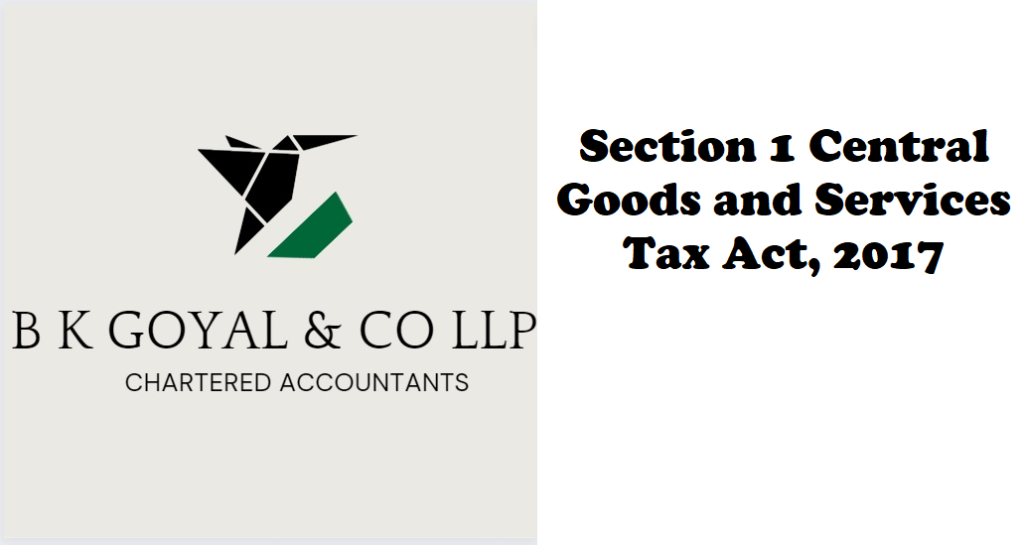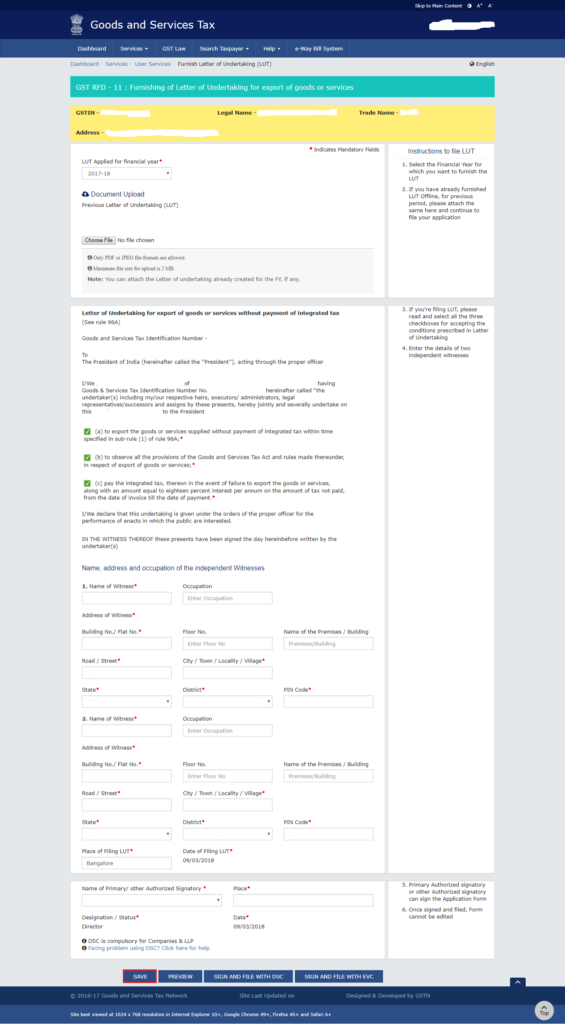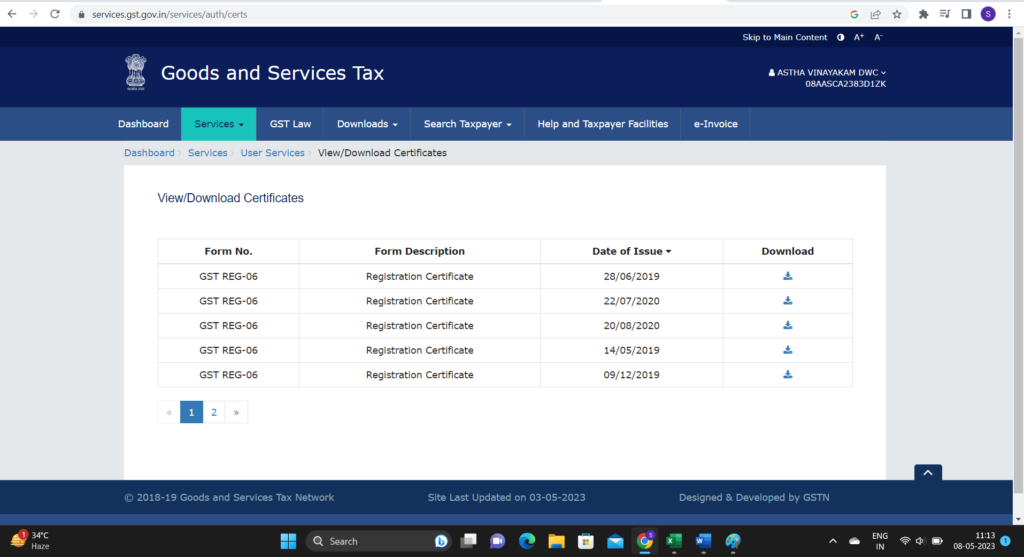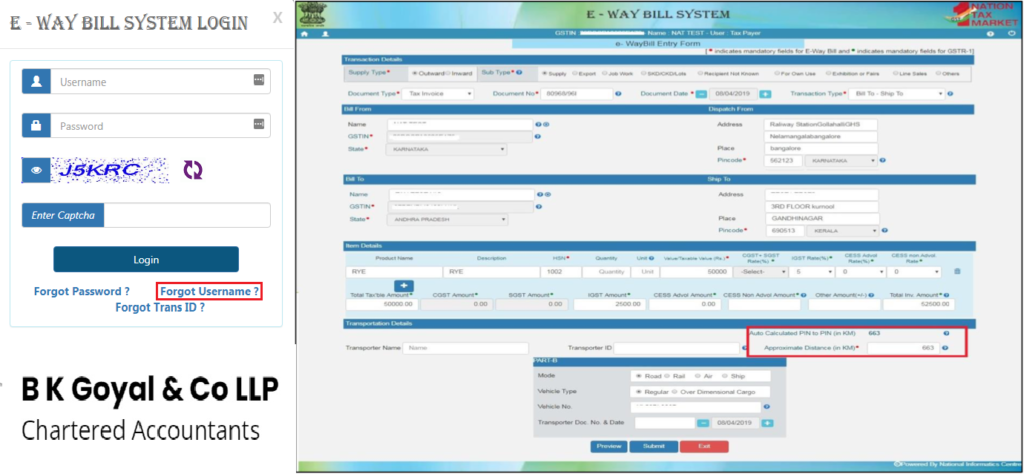Definitions In this Act, unless the context otherwise requires,- (1) “actionable claim” shall have the same meaning as assigned to it in section 3 of the Transfer of Property Act, 1882 (4 of 1882); (2) “address of delivery” means the address of the recipient of goods or services or both indicated on the tax invoice issued by a registered person for delivery of such goods or services or both; (3) “address on record” means the address of the recipient as available in the records of the supplier; (4) “adjudicating authority” means any authority, appointed or authorised to pass any order or decision under this Act, but does not include the 1[Central Board of Indirect Taxes and Customs], the Revisional Authority, the Authority for Advance Ruling, the Appellate Authority for Advance Ruling, 2[the National Appellate Authority for Advance Ruling,] 3[the Appellate Authority, the Appellate Tribunal and the Authority referred to in sub-section (2) of section 171]; (5) “agent” means a person, including a factor, broker, commission agent, arhatia, del credere agent, an auctioneer or any other mercantile agent, by whatever name called, who carries on the business of supply or receipt of goods or services or both on behalf of another; (6) “aggregate turnover” means the aggregate value of all taxable supplies (excluding the value of inward supplies on which tax is payable by a person on reverse charge basis), exempt supplies, exports of goods or services or both and inter-State supplies of persons having the same Permanent Account Number, to be computed on all India basis but excludes central tax, State tax, Union territory tax, integrated tax and cess; (7) “agriculturist” means an individual or a Hindu Undivided Family who undertakes cultivation of land- (a) by own labour, or (b) by the labour of family, or (c) by servants on wages payable in cash or kind or by hired labour under personal supervision or the personal supervision of any member of the family; (8) “Appellate Authority” means an authority appointed or authorised to hear appeals as referred to in section 107; (9) “Appellate Tribunal” means the Goods and Services Tax Appellate Tribunal constituted under section 109; (10) “appointed day” means the date on which the provisions of this Act shall come into force; (11) “assessment” means determination of tax liability under this Act and includes self-assessment, re-assessment, provisional assessment, summary assessment and best judgment assessment; (12) “associated enterprises” shall have the same meaning as assigned to it in section 92A of the Income-tax Act, 1961 (43 of 1961); (13) “audit” means the examination of records, returns and other documents maintained or furnished by the registered person under this Act or the rules made thereunder or under any other law for the time being in force to verify the correctness of turnover declared, taxes paid, refund claimed and input tax credit availed, and to assess his compliance with the provisions of this Act or the rules made thereunder; (14) “authorised bank” shall mean a bank or a branch of a bank authorised by the Government to collect the tax or any other amount payable under this Act; (15) “authorised representative” means the representative as referred to in section 116; (16) “Board” means the 4[Central Board of Indirect Taxes and Customs] constituted under the Central Boards of Revenue Act, 1963 (54 of 1963); (17) “business” includes – (a) any trade, commerce, manufacture, profession, vocation, adventure, wager or any other similar activity, whether or not it is for a pecuniary benefit; (b) any activity or transaction in connection with or incidental or ancillary to sub-clause (a); (c) any activity or transaction in the nature of sub-clause (a), whether or not there is volume, frequency, continuity or regularity of such transaction; (d) supply or acquisition of goods including capital goods and services in connection with commencement or closure of business; (e) provision by a club, association, society, or any such body (for a subscription or any other consideration) of the facilities or benefits to its members; (f) admission, for a consideration, of persons to any premises; (g) services supplied by a person as the holder of an office which has been accepted by him in the course or furtherance of his trade, profession or vocation; (h) 5[activities of a race club including by way of totalisator or a license to book maker or activities of a licensed book maker in such club; and] (i) any activity or transaction undertaken by the Central Government, a State Government or any local authority in which they are engaged as public authorities; (18) 6[****]; (19) “capital goods” means goods, the value of which is capitalised in the books of account of the person claiming the input tax credit and which are used or intended to be used in the course or furtherance of business; (20) “casual taxable person” means a person who occasionally undertakes transactions involving supply of goods or services or both in the course or furtherance of business, whether as principal, agent or in any other capacity, in a State or a Union territory where he has no fixed place of business; (21) “central tax” means the central goods and services tax levied under section 9; (22) “cess” shall have the same meaning as assigned to it in the Goods and Services Tax (Compensation to States) Act; (23) “chartered accountant” means a chartered accountant as defined in clause (b) of sub-section (1) of section 2 of the Chartered Accountants Act, 1949 (38 of 1949); (24) “Commissioner” means the Commissioner of central tax and includes the Principal Commissioner of central tax appointed under section 3 and the Commissioner of integrated tax appointed under the Integrated Goods and Services Tax Act; (25) “Commissioner in the Board” means the Commissioner referred to in section 168; (26) “common portal” means the common goods and services tax electronic portal referred to in section 146; (27) “common working days” in respect of a State or Union territory shall mean such days in succession which are not declared as gazetted holidays by the Central Government or the concerned State or Union territory Government; (28) “company secretary” means a company secretary as defined in clause (c) of sub-section (1) of section 2 of the Company Secretaries Act, 1980 (56 of 1980); (29) “competent authority” means such authority as may be notified by the Government; (30) “composite supply” means



